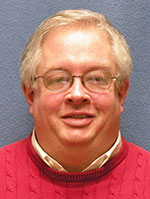Faith and Family / Sean Gallagher
The beatitudes are ‘pathways to holiness’ for families
 At Mass on All Saints Day on Nov. 1 each year, the beatitudes from the Gospel of St. Matthew are proclaimed. They are what the saints embodied in their daily lives that led them to heaven.
At Mass on All Saints Day on Nov. 1 each year, the beatitudes from the Gospel of St. Matthew are proclaimed. They are what the saints embodied in their daily lives that led them to heaven.
How can they help parents and children today become saints? Here are some suggestions.
“Blessed are the poor in spirit, for theirs is the kingdom of heaven” (Mt 5:3). As children grow, they naturally want to do things for themselves. To an extent, that’s good and appropriate. It’s important for them, though, to continue to depend on the help of others, especially the wisdom of their elders. Parents can model this by listening attentively when children speak about how things should go in the home.
“Blessed are they who mourn, for they will be comforted” (Mt 5:4). Children often cry their eyes out when a favorite toy is broken or lost—usually something an adult wouldn’t think twice about. But parents and older siblings can grow in holiness when we show understanding to our mourning young ones.
“Blessed are the meek, for they will inherit the land” (Mt 5:5). Family members embody this beatitude when they show humility in their relationship with each other. Sometimes, they can be stubborn in demanding their own way. Humility—being meek—is a way to foster harmony and holiness in a home.
“Blessed are they who hunger and thirst for righteousness, for they will be satisfied” (Mt 5:6). Today, many parents and children think they’ll be satisfied with more material things, especially the latest digital device. That never happens, though. We always end up wanting what’s next. It is seeking to do God’s will for us that brings lasting satisfaction.
“Blessed are the merciful, for they will be shown mercy” (Mt 5:7). It’s common in families for individuals to have a laser-like focus on justice when they’ve been wronged. This beatitude reminds us that we all sin, and thus we all need mercy. Therefore, with God’s help, we can and should show mercy to those who hurt us.
“Blessed are the clean of heart, for they will see God” (Mt 5:8). Both parents and children can have their attention split among many appropriate and necessary things every day—caring for children, doing chores around the house, doing homework, etc. For disciples of Christ, our faith helps us see the unity of these varied tasks. God’s will for us is in them all. And his grace will open our eyes to his presence in our daily lives when we seek to do them well and offer them up to him.
“Blessed are the peacemakers, for they will be called children of God” (Mt 5:9). Conflict to one degree or another is a daily fact of life among children growing up in a family home. Parents need to model for them how to settle differences peacefully in ways that show respect to those we oppose because they’re made in the image and likeness of God.
The last two beatitudes can go together: “Blessed are they who are persecuted for the sake of righteousness, for theirs is the kingdom of heaven. Blessed are you when they insult you and persecute you and utter every kind of evil against you [falsely] because of me. Rejoice and be glad, for your reward will be great in heaven. Thus they persecuted the prophets who were before you” (Mt 5:11-12).
In society today, disciples of Christ are pressured to hide or even compromise Gospel principles that run counter to popular beliefs on a wide spectrum of issues—from marriage and sexuality to the welcoming of immigrants.
If, with the help of God’s grace, we not only hold onto our beliefs, but let them be lights shining in our cultural darkness, we may be persecuted, but we’ll also receive blessings unimagined. The place to be trained for this spiritual and cultural battle is in the home. It is there that children, under the care of their parents, can learn Gospel principles, make them their own and begin to live them with joy.
With the help of God’s grace, families can take their place in the great cloud of witnesses of the saints by following in their daily lives the pathways of holiness marked out to us by the beatitudes. †
 At Mass on All Saints Day on Nov. 1 each year, the beatitudes from the Gospel of St. Matthew are proclaimed. They are what the saints embodied in their daily lives that led them to heaven.
At Mass on All Saints Day on Nov. 1 each year, the beatitudes from the Gospel of St. Matthew are proclaimed. They are what the saints embodied in their daily lives that led them to heaven.